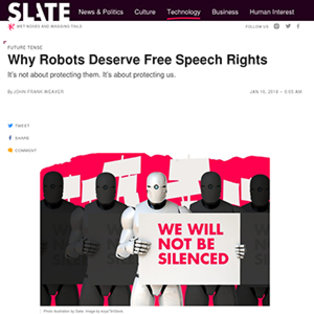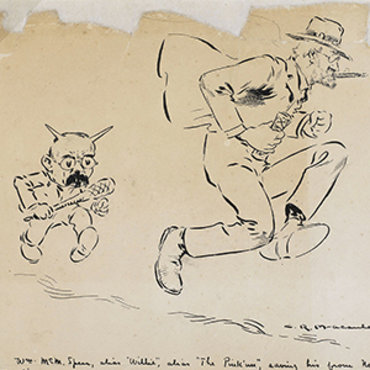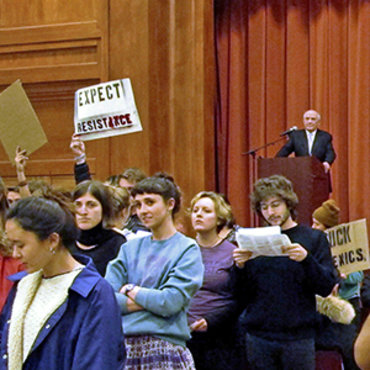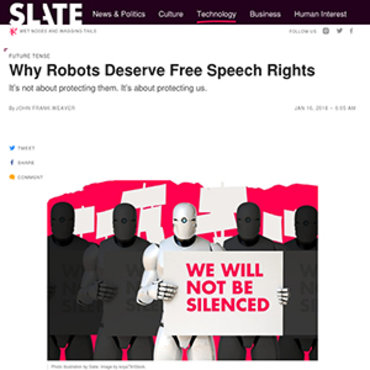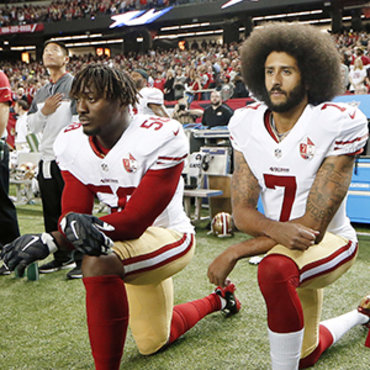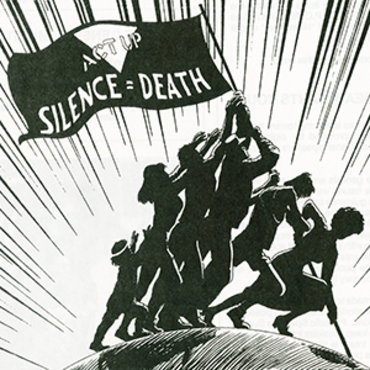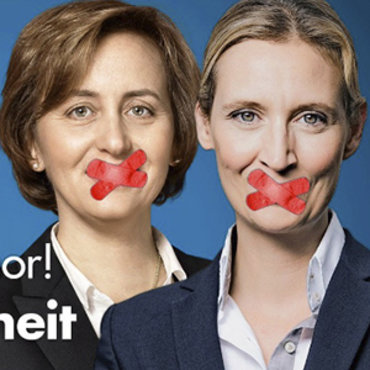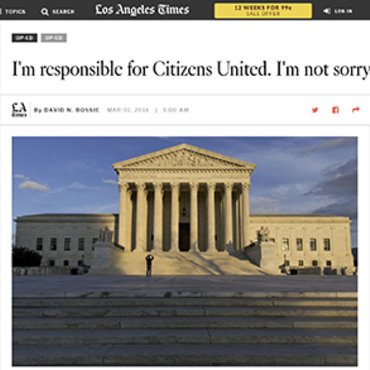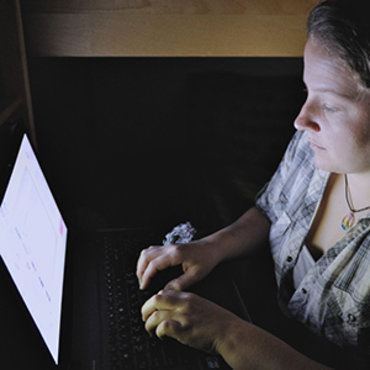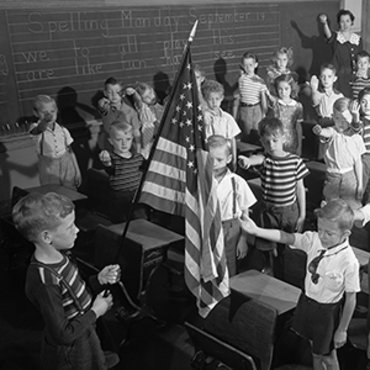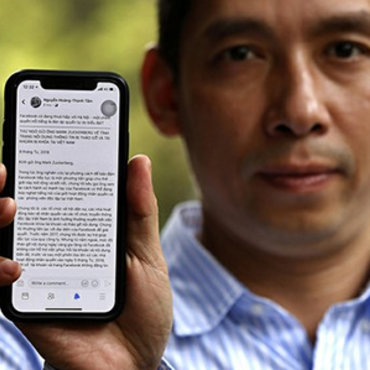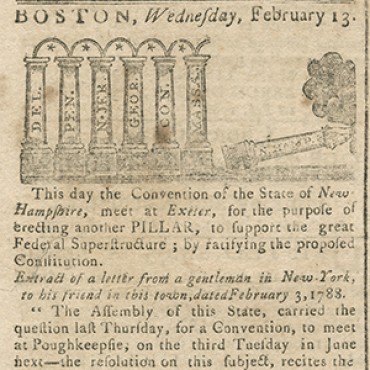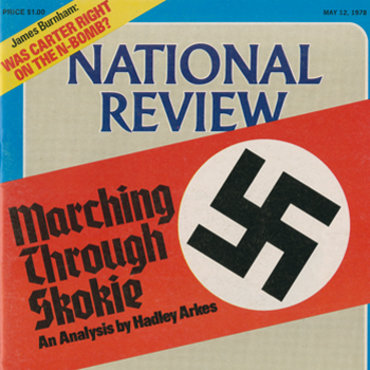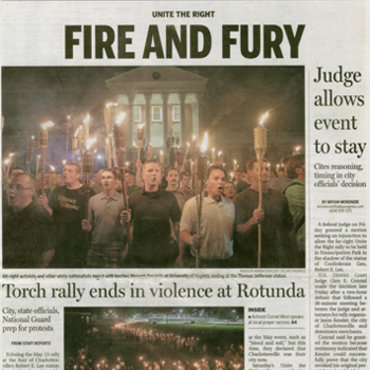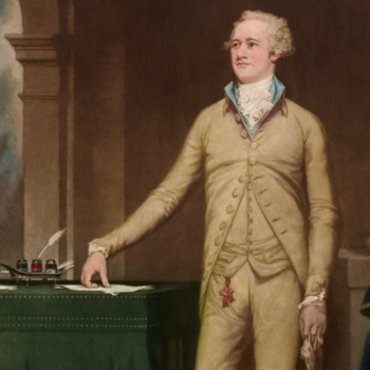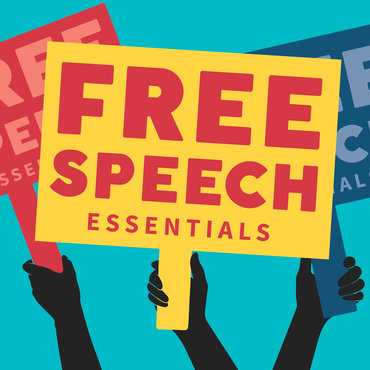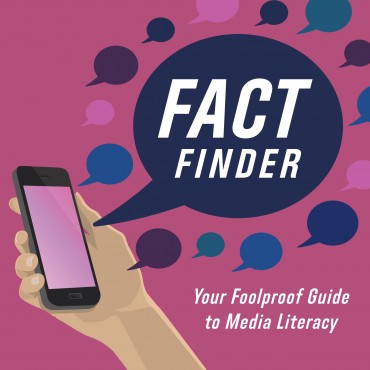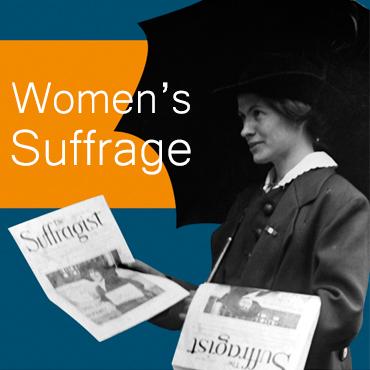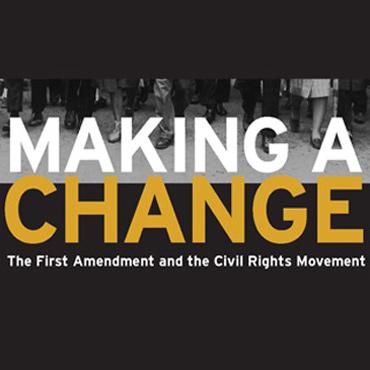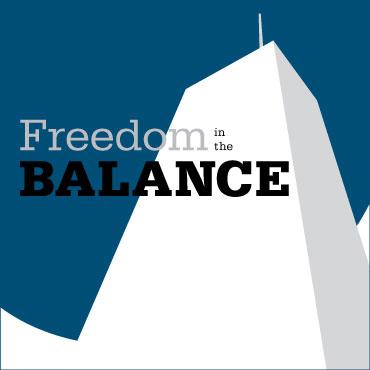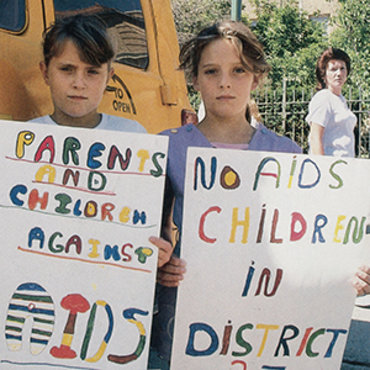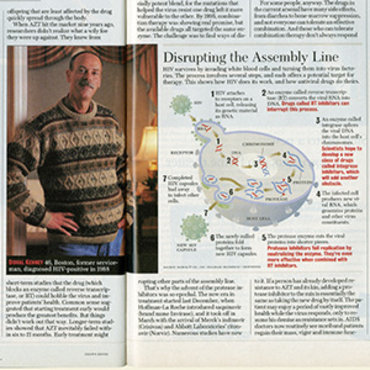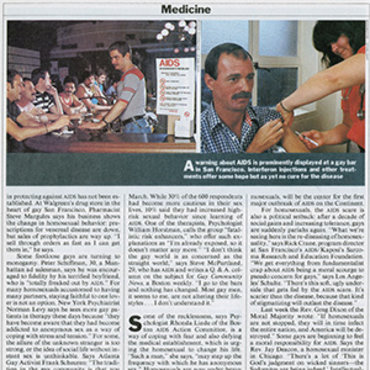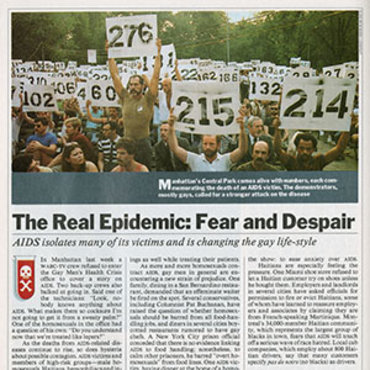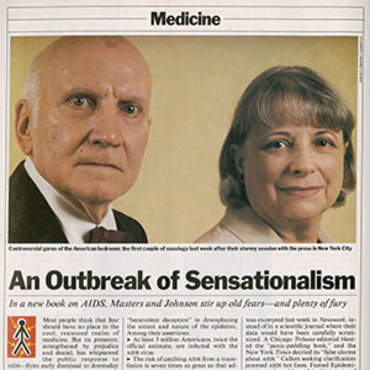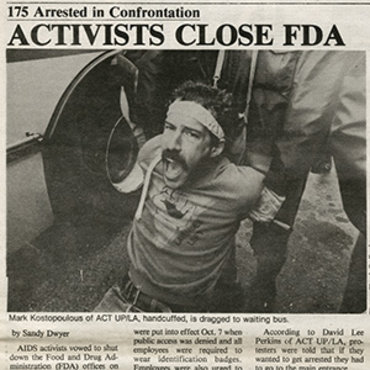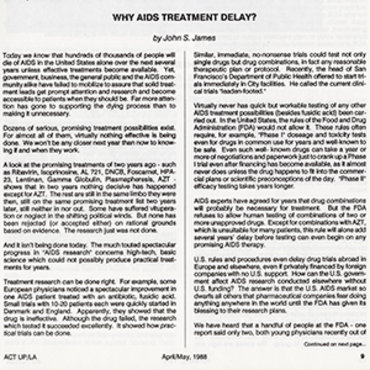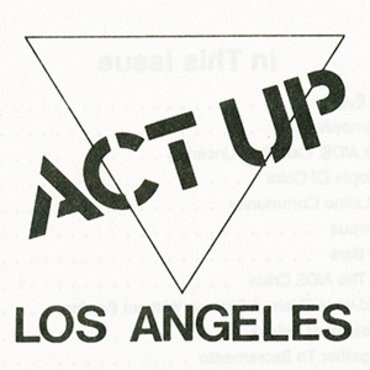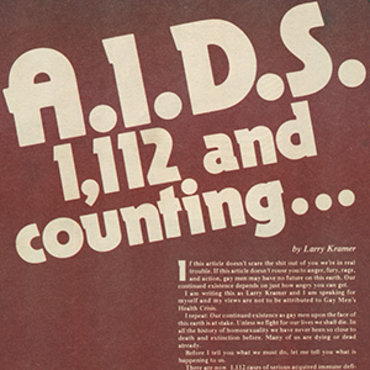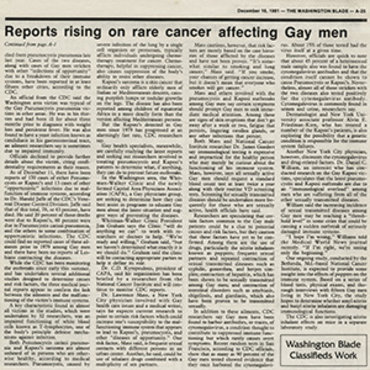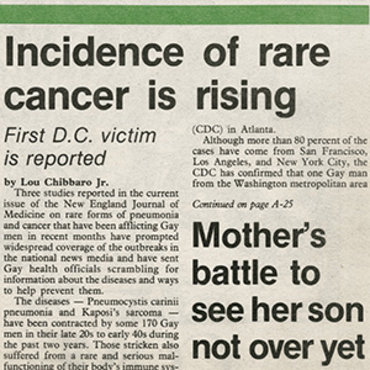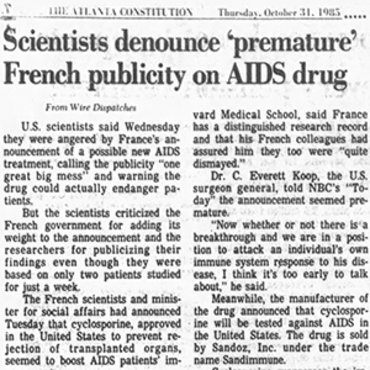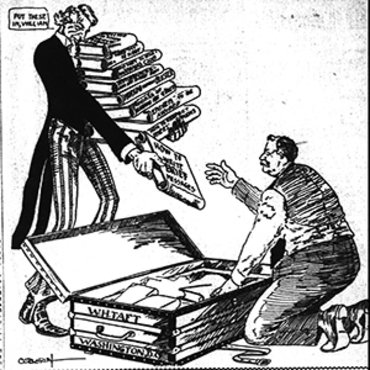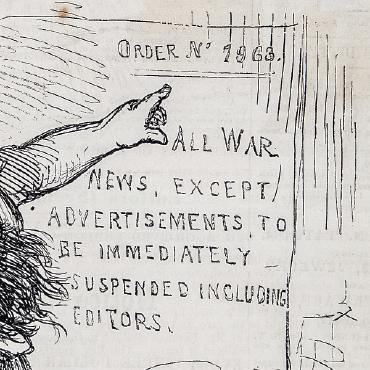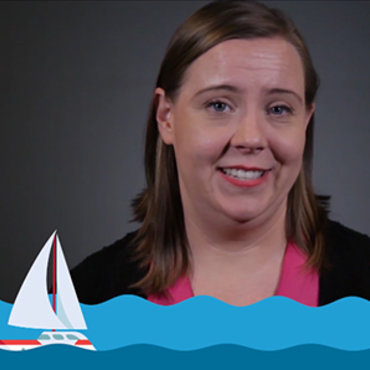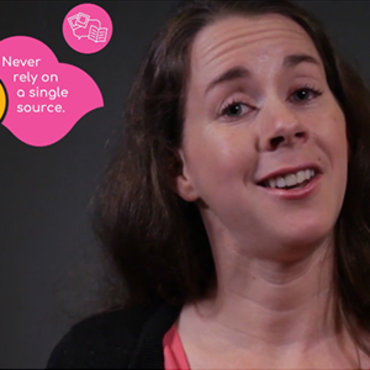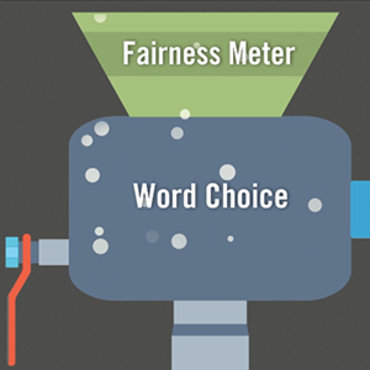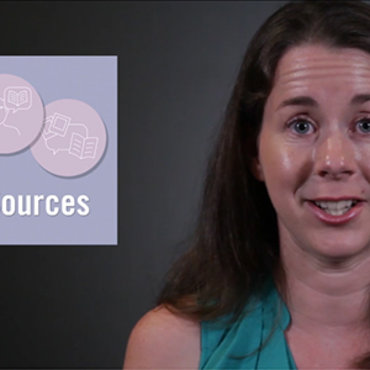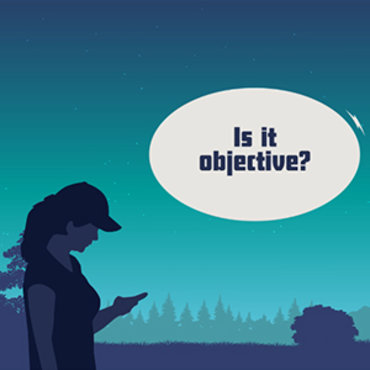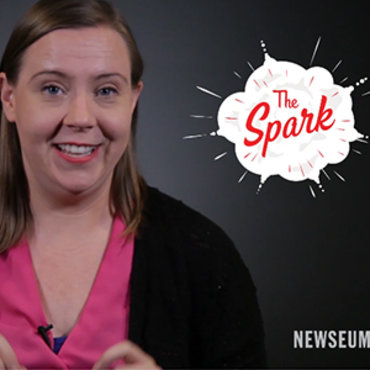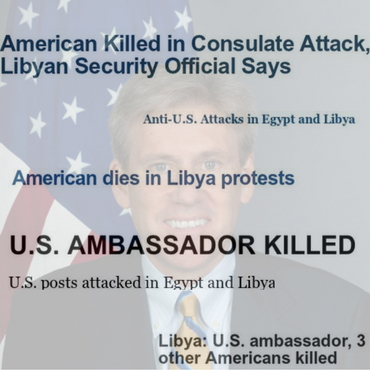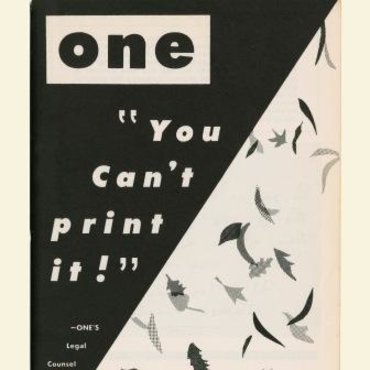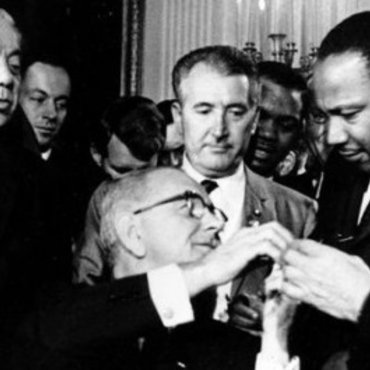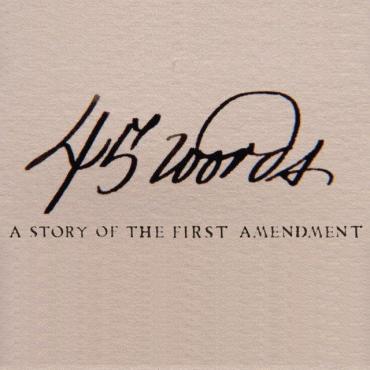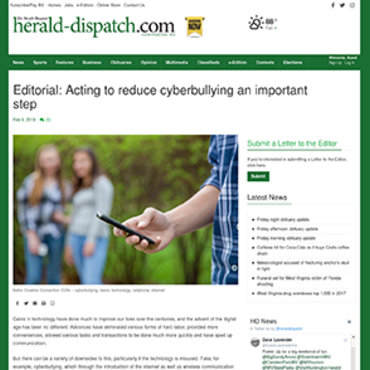Get even more great free content!
This content contains copyrighted material that requires a free NewseumED account.
Registration is fast, easy, and comes with 100% free access to our vast collection of videos, artifacts, interactive content, and more.
NewseumED is provided as a free educational resource and contains copyrighted material. Registration is required for full access. Signing up is simple and free.
With a free NewseumED account, you can:
- Watch timely and informative videos
- Access expertly crafted lesson plans
- Download an array of classroom resources
- and much more!
- Constitution
- Current Events
- Journalism
- Media Ethics
- 7-12
- College/University
You're Exploring Free Speech Essentials
What protects us from liars and trolls?
2018: Sharing a Shaky Claim
This critical debate puts today's problems with bad information online into perspective by examining how misinformation was spread about HIV/AIDS in the 1980s.
2018: Bombarded by Bots
When a senator proposes regulating the use of automated bots online to increase transparency and reduce misinformation, critics worry this could limit human speech as well.
-
Common Core State Standards: CCSS.ELA-LITERACY.CCRA.R.1
Read closely to determine what the text says explicitly and to make logical inferences from it; cite specific textual evidence when writing or speaking to support conclusions drawn from the text. -
Common Core State Standards: CCSS.ELA-LITERACY.CCRA.R.6
Assess how point of view or purpose shapes the content and style of a text. -
Common Core State Standards: CCSS.ELA-LITERACY.CCRA.R.8
Delineate and evaluate the argument and specific claims in a text, including the validity of the reasoning as well as the relevance and sufficiency of the evidence. -
Common Core State Standards: CCSS.ELA-LITERACY.CCRA.R.9
Analyze how two or more texts address similar themes or topics in order to build knowledge or to compare the approaches the authors take. -
Common Core State Standards: CCSS.ELA-LITERACY.CCRA.SL.2
Integrate and evaluate information presented in diverse media and formats, including visually, quantitatively, and orally. -
Common Core State Standards: CCSS.ELA-LITERACY.CCRA.SL.3
Evaluate a speaker's point of view, reasoning, and use of evidence and rhetoric. -
Common Core State Standards: CCSS.ELA-LITERACY.CCRA.SL.4
Present information such that listeners can follow the line of reasoning and the organization, development, and style are appropriate to task, purpose, and audience.
-
NCSS C3 Framework: D3.1.6-8 and D3.1.9-12
6 - 8: Gather relevant information from multiple sources while using the origin, authority, structure, context, and corroborative value of the sources to guide the selection. 9 - 12: Gather relevant information from multiple sources representing a wide range of views while using the origin, authority, structure, context, and corroborative value of the sources to guide the selection -
NCSS C3 Framework: D3.4.6-8 and D3.4.9-12
6 - 8. Develop claims and counterclaims while pointing out the strengths and limitations of both. 9 - 12. Refine claims and counterclaims attending to precision, significance, and knowledge conveyed through the claim while pointing out the strengths and limitations of both. -
NCSS C3 Framework: D4.1.6-8 and D4.1.9-12
6 - 8: Construct arguments using claims and evidence from multiple sources, while acknowledging the strengths and limitations of the arguments. 9 - 12: Construct arguments using precise and knowledgeable claims, with evidence from multiple sources, while acknowledging counterclaims and evidentiary weaknesses.
-
ISTE: 3b. Knowledge Constructor
Students evaluate the accuracy, perspective, credibility and relevance of information, media, data or other resources.
-
National Council of Teachers of English: NCTE.1
Students read a wide range of print and non-print texts to build an understanding of texts, of themselves, and of the cultures of the United States and the world; to acquire new information; to respond to the needs and demands of society and the workplace; and for personal fulfillment. Among these texts are fiction and nonfiction, classic and contemporary works.
-
Center for Civic Education: CCE.II
A. What is the American idea of constitutional government? B. What are the distinctive characteristics of American society? C. What is American political culture? D. What values and principles are basic to American constitutional democracy?


